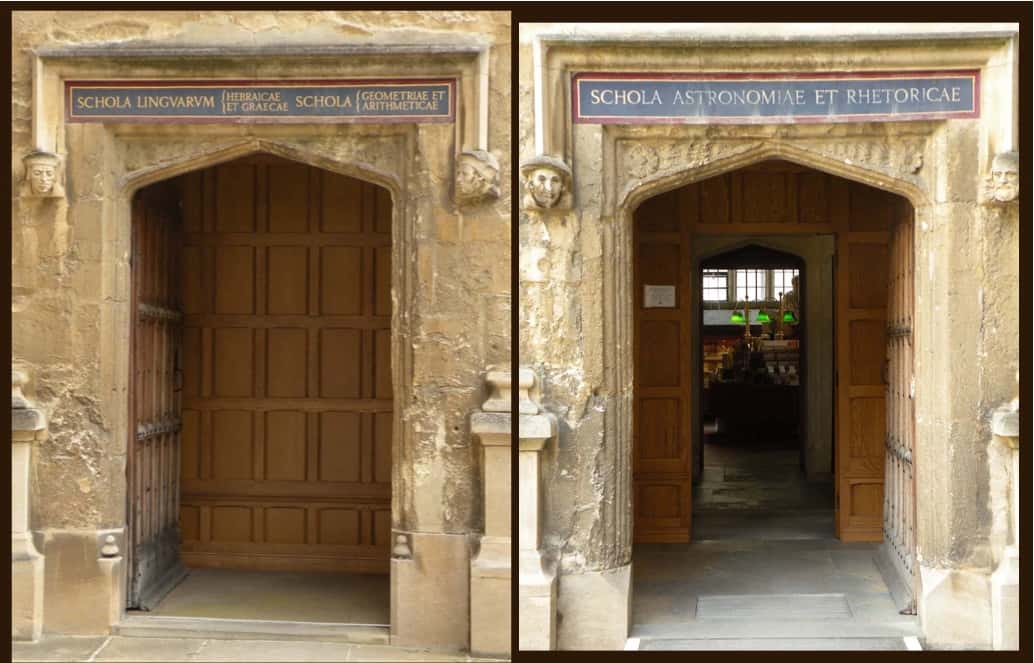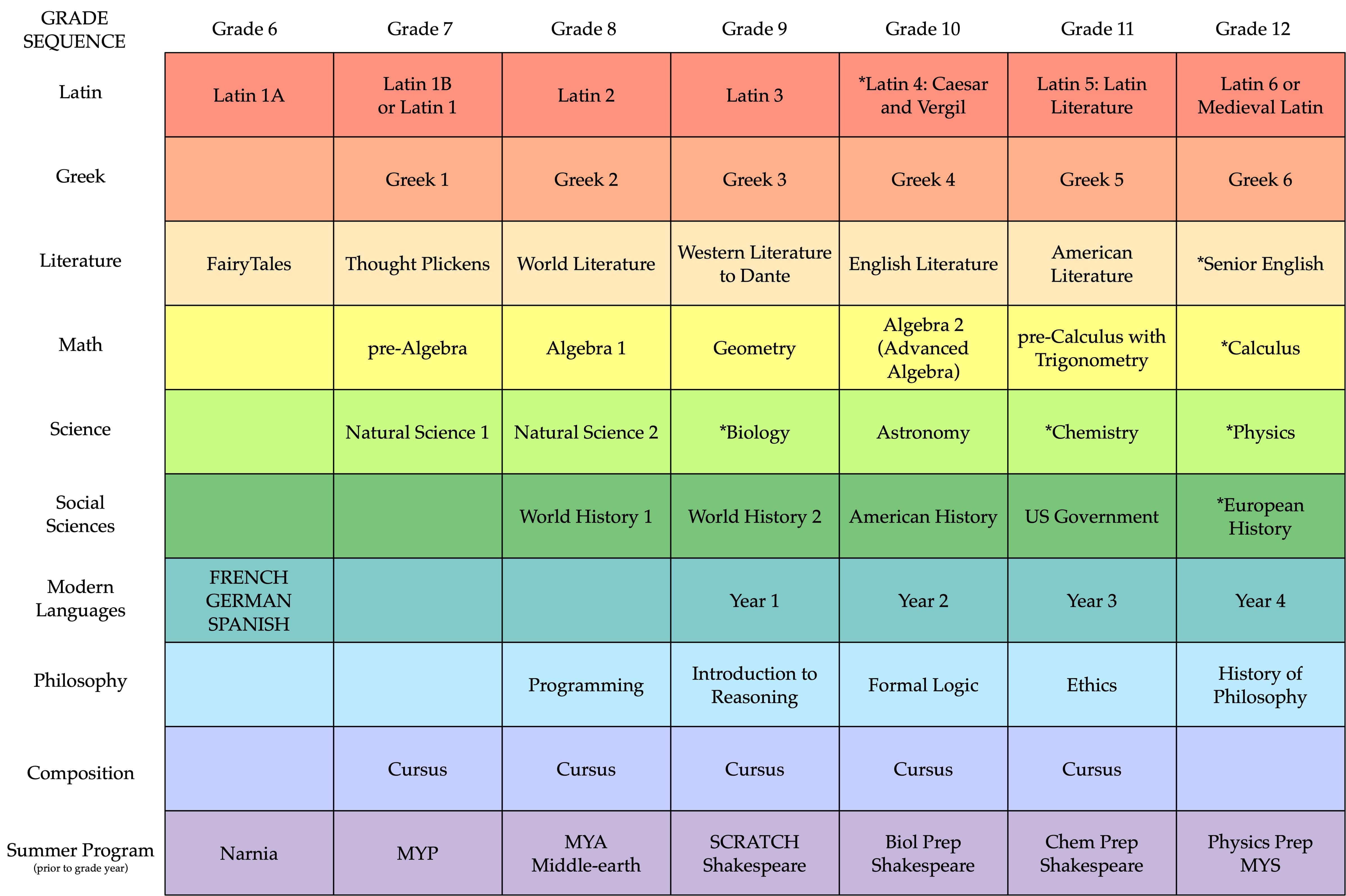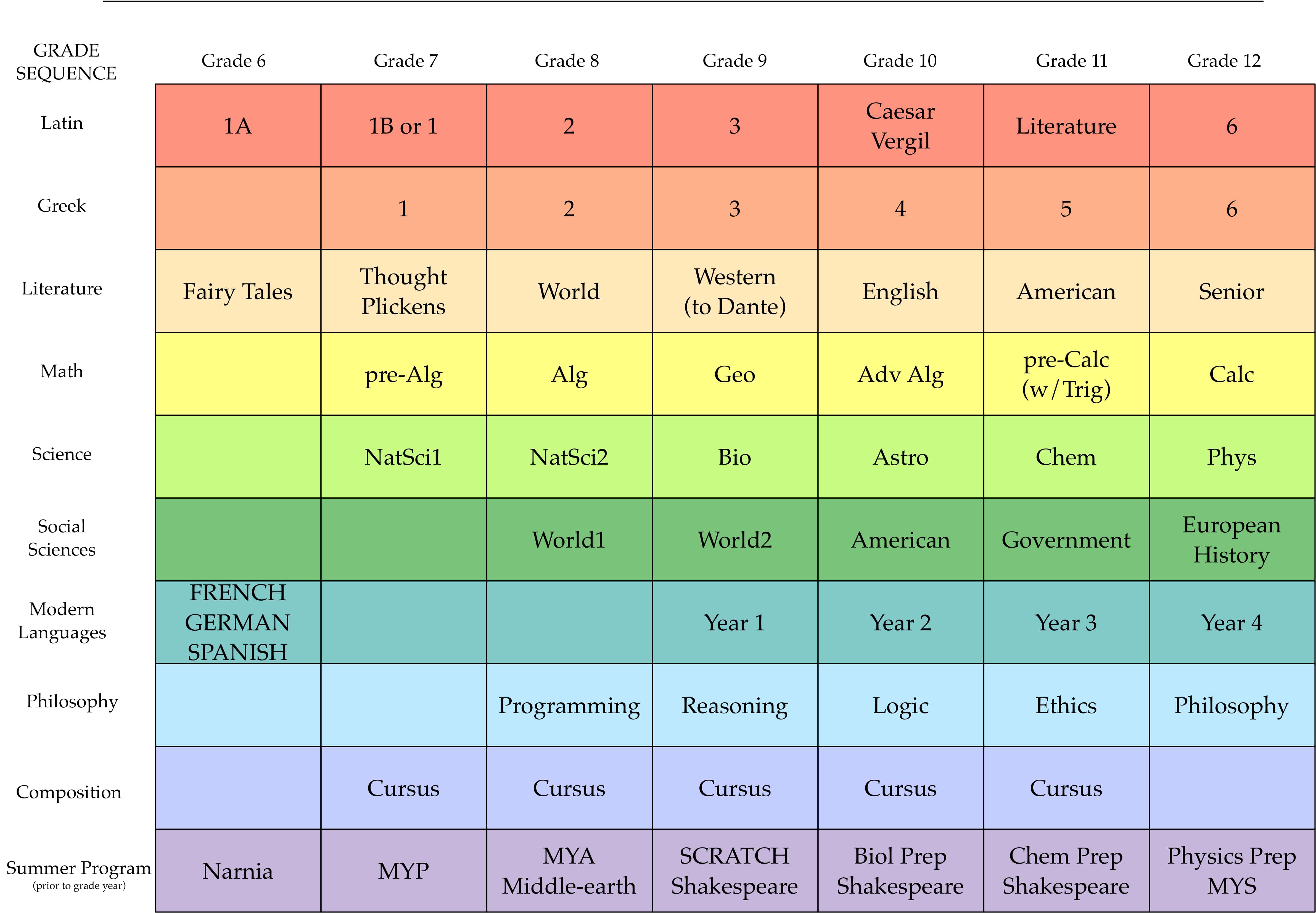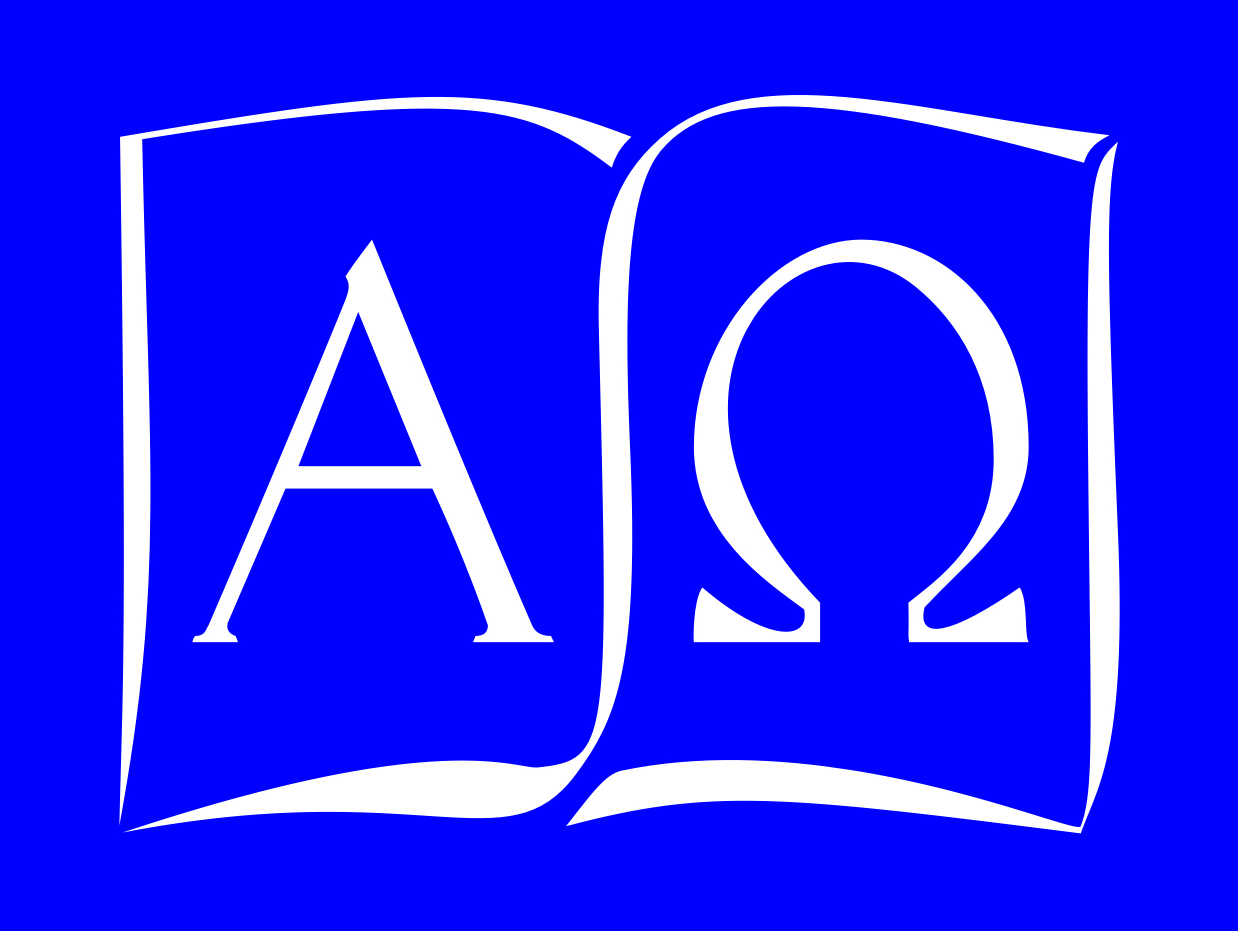Planning your Classical Education Online

What should a classical education curriculum include?
Not everyone agrees on what a classical Christian education is, much less what it should include or even emphasize. We’ve tried to explain our own understanding and goals for classical Christian education content and practice in the essays on our Classical Education page. We’ve put a lot of thought into what courses are necessary to accomplish what we believe are the main goals of this educational approach.
Classical Christian Education Goals
- Tools for a a lifetime of learning: A classical education should provide students with the basic concepts of important subjects, but more significantly, it should provide them with the tools to continue learning, not merely to complete college-level courses, or to retrain for a new job, but to gain the wisdom and understanding that will guide them to discern and fulfill God's will for their lifetimes. A classical education online or offline should include development of skills in critical thinking and analysis, close reading and careful listening, and clear, precise self-expression.
- Subject mastery: Students should understand the fundamentals and their implications for the subjects they have studied, and be able to use these principles in applications in a wide variety of circumstances. Scholars Online organizes courses in sequences that allow students to gain mastery over each subject through rigorous study of fundamentals and constant application of skills, spread out over a seven-year program that can begin in sixth grade, depending on the individual student's preparation. Students who can begin one or more of the sequences in grade six will have more time to devote to subsequent courses taken later.
- Education in Community: Real understanding of a subject ultimately does not occur in isolation. Not only do students require the guidance of teachers, but they benefit from the insight and perplexities of their fellow students, and hone their listening skills and self-expression through the charitable practice of civil discourse. Scholars Online courses provide ample opportunity for students to develop these skills through direct contact with teachers and fellow students in live chat sessions.
Classical Education Online at Scholars Online
I can't begin to share all that our kids have learned from Scholar's Online....yes, they have learned to balance a full work load and manage their time wisely. They have learned to make notecards and study in new, efficient ways. They have learned to meet rigorous deadlines.
More importantly, their professors are teaching them to think....REALLY think. They are learning to respectfully discuss opposing viewpoints, they are grappling with ideas that point to a higher purpose.
I'm so pleased with the information they are learning, but even more amazed by the students they are becoming.
—Stacy M.
The following chart shows the curriculum plan for a student beginning as late as possible to complete each sequence. Students normally would begin more courses in the sixth grade year than shown. Courses marked with an asterisk (*) are designed to prepare students for AP examinations but have not been formally certified by the College Board Advanced Placement program, since AP syllabus requirements did not meet our standards for the course.
We encourage you to consider the courses and sequences as a guide that you can modify to your own students’ current level and personal goals, whether you take courses as part of a complete classical education online, or chose several to supplement your own curriculum. We developed the course sequences after reviewing the graduation requirements for both public and private schools, as well as the admission requirements for a number of colleges and universities. We are confident that students completing most of the coursework here would qualify for consideration by the nation’ best colleges.


Curriculum by Sequence (see also Curriculum by Grade below)
Summaries of each sequence are given on individual pages, along with the course listings for the current academic year and summer sessions. The following lists are guidelines only. Individual students may be able to accerate some areas, and others may not be able to include all sequences in their curriculum.
- Latin Sequence (Sequence Page)
- Grade 6: Latin 1A - Equivalent to 1st semester Latin 1
- Grade 7: Latin 1B - Equivalent to 2nd semester Latin 2; or Latin 1
- Grade 8: Latin 2 Take National Latin Exam!
- Grade 9: Latin 3 Take National Latin Exam!
- Grade 10: Latin 4 - Caesar and Vergil (Latin AP Exam)
- Grade 11: Latin 5 - Latin Literature
- Grade 12: Latin 6
- Option for students completing the sequence early: Medieval Latin
- Greek Sequence (Sequence Page)
- Grade 6: No Greek (start Latin instead!)
- Grade 7: Greek 1
- Grade 8: Greek 2
- Grade 9: Greek 3 Take National Greek Exam!
- Grade 10: Greek 4 Take National Greek Exam!
- Grade 11: Greek 5 Take National Greek Exam!
- Grade 12: Greek 6 Take National Greek Exam!
- Literature Sequence (Sequence Page)
- Grade 6: [Read children's classics]
- Grade 7: [Read mythology]
- Grade 8: World Literature
- Grade 9: Western Literature to Dante
- Grade 10: English Literature
- Grade 11: American Literature
- Grade 12: Senior English (extensive composition content) Take English AP Exam!
- Mathematics Sequence (Sequence Page)
- Grade 6: [Solid background in arithmetic, graphing skills, fractions]
- Grade 7: pre-Algebra
- Grade 8: Algebra I
- Grade 9: Geometry
- Grade 10: Algebra II (Advanced Algebra)
- Grade 11: pre-Calculus
- Grade 12: Calculus
- Science Sequence (Sequence Page)
- Grade 6: [Junior High level experience in life, physical, and earth sciences.]
- Grade 7: Natural Science 1
- Grade 8: Natural Science 2
- Grade 9: Astronomy
- Grade 10: Biology - Take AP Biology Exam!
- Grade 11: Chemistry - Take AP Chemistry Exam!
- Grade 12: Physics - Take AP Physics 1 and/or 2 Exam!
- Social Sciences/History Sequence (Sequence Page)
- Grade 6: [Biographies of famous people]
- Grade 7: [Geography]
- Grade 8: World History I
- Grade 9: World History II
- Grade 10: American History
- Grade 11: American Government
- Grade 12: European History/Senior Project - Take AP European History Exam!
- Philosophy Sequence (Sequence Page)
- Grade 6: [Focus on mathematical reasoning]
- Grade 7: [Focus on mathematical reasoning]
- Grade 8: Programming
- Grade 9: Introduction to Reasoning
- Grade 10: Formal Logic
- Grade 11: Ethics
- Grade 12: History of Philosophy
- Writing Sequence (Sequence Page)
- Grade 6: Molding Your Prose (summer)/Cursus - Focus on Grammar
- Grade 7: Molding Your Argument (summer)/Cursus - Focus on Grammar
- Grade 8: Cursus - Focus on Argument formation
- Grade 9: Cursus - Focus on Argument formation
- Grade 10: Cursus - Focus on Rhetoric
- Grade 11: Molding Your Style (summer)/Cursus - Focus on Rhetoric
- Grade 12: [Focus on Senior English composition component]
Curriculum by Grade (see also Curriculum by Sequence above)
- Sixth Grade
- Latin: 1A - Equivalent to 1st semester Latin 1
- Greek: No Greek (start Latin instead!)
- Literature: [Read children's classics]
- Mathematics: [Solid background in arithmetic, graphing skills, fractions]
- Science: [Junior High level experience in life, physical, and earth sciences.]
- History: [Biographies of famous people]
- Philosophy: [Focus on mathematical reasoning]
- Seventh Grade
- Latin: Latin 1B - Equivalent to 2nd semester Latin 2; or Latin 1
- Greek: Greek 1
- Literature: [Read mythology]
- Mathematics: pre-Algebra
- Science: Natural Science 1
- History: [Geography]
- Philosophy: [Focus on mathematical reasoning]
- Composition: Molding Your Prose (summer)/Cursus - Focus on Grammar
- Eighth Grade
- Latin: Latin 2 Take National Latin Exam!
- Greek: Greek 2
- Literature: World Literature
- Mathematics: Algebra I
- Science: Natural Science 2
- History: World History I
- Philosophy: Programming
- Composition: Molding Your Argument (summer)/Cursus - Focus on Grammar
- Ninth Grade (Freshman Year)
- Latin: Latin 3 Take National Latin Exam!
- Greek: Greek 3 Take National Greek Exam!
- Literature: Western Literature to Dante
- Mathematics: Geometry
- Science: Astronomy
- History: World History II
- Philosophy: Introduction to Reasoning
- Composition: Cursus - Focus on Argument formation
- Tenth Grade (Sophomore Year)
- Latin: Latin 4 - Caesar and Vergil (Latin AP Exam)
- Greek: Greek 4 Take National Greek Exam!
- Literature: English Literature
- Mathematics: Algebra II (Advanced Algebra)
- Science: Biology Prep (summer)/Biology - Take AP Biology Exam!
- History: American History
- Philosophy: Formal Logic
- Composition: Cursus - Focus on Rhetoric
- Eleventh Grade (Junior Year)
- Latin: Latin 5 - Latin Literature
- Greek: Greek 5 Take National Greek Exam!
- Literature: American Literature
- Mathematics: pre-Calculus
- Science: Chemistry Prep (summer)/Chemistry - Take AP Chemistry Exam!
- History: American Government
- Philosophy: Ethics
- Composition: Molding Your Style (summer)/Cursus - Focus on Rhetoric
- Twelfth Grade (Senior Year)
- Latin: Latin 6
- Greek: Greek 6 Take National Greek Exam!
- Literature: Senior English (extensive composition content) Take English AP Exam!
- Mathematics: Calculus
- Science: Physics Pre (summer)/Physics - Take AP Physics 1 and/or 2 Exam!
- History: European History/Senior Project - Take AP European History Exam!
- Philosophy: History of Philosophy
- Composition: [Focus on composition component Senior English]
 Scholars Online is fully accredited through the Middle States Accreditation Commissions on Elementary and Secondary Schools.
Scholars Online is fully accredited through the Middle States Accreditation Commissions on Elementary and Secondary Schools.
Hosted on Interserver


